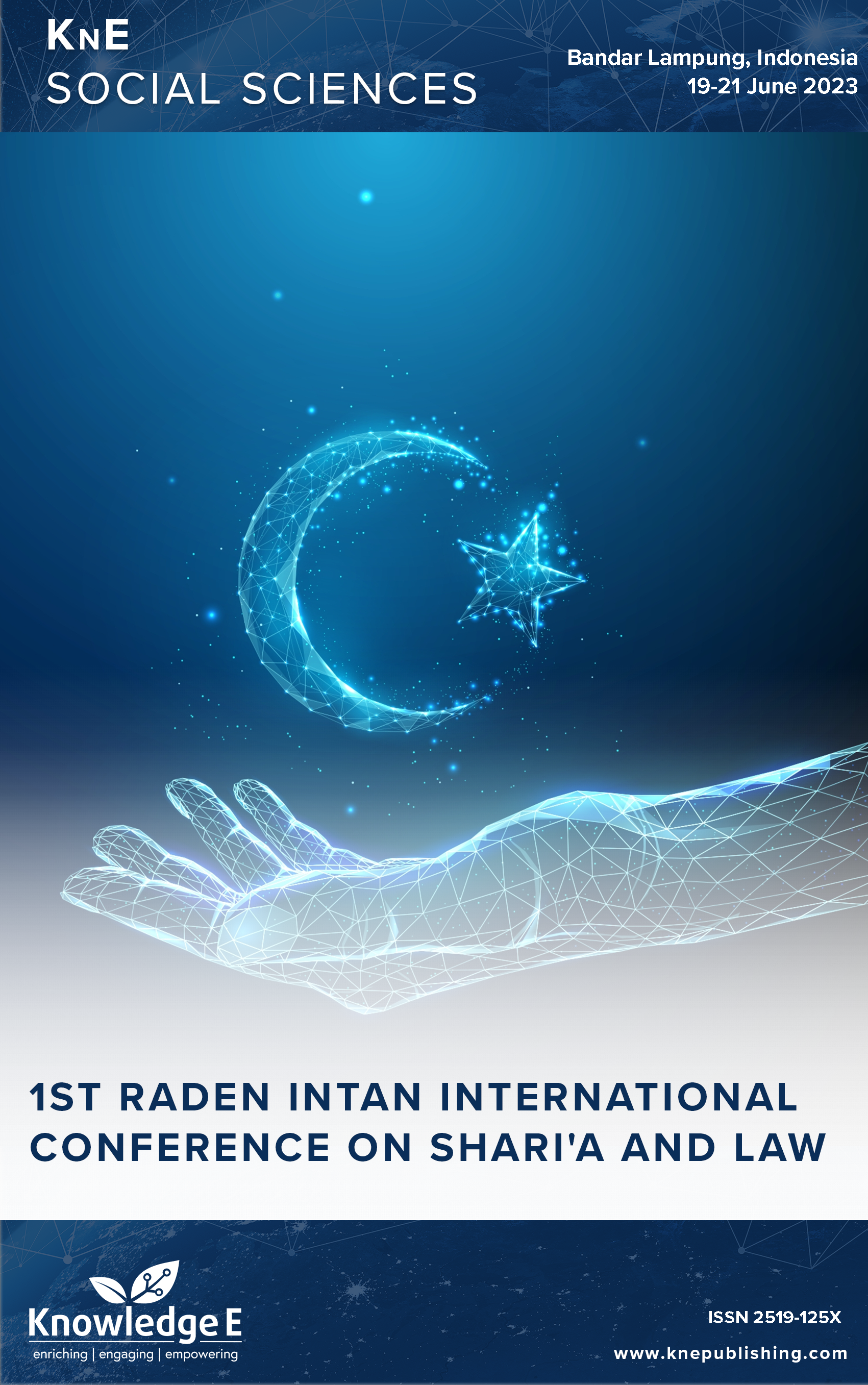Challenges and Threats of Artificial Intelligence in Maqasid Sharia Perspective
DOI:
https://doi.org/10.18502/kss.v9i2.15004Abstract
Human intelligence, also known as artificial intelligence (AI), is a system made through a computer system that can perform tasks like humans. It is growing rapidly with all the sophistication presented, and AI has mastered almost all sectors. However, the sophistication and all the innovations presented raise concerns for humans, especially for the future. AI for its users is very helpful by providing all the conveniences for humans with a low budget, more efficient time, etc., at the same time AI also has a very extraordinary impact on human life in various sectors. Because it is predicted that AI will replace human work, then what is the purpose of Islamic law (Maqasid sharia) regarding this phenomenon? Therefore, it is clear that the development of AI poses challenges and threats to human life. This study uses a phenomenological approach and a literature review by searching for data and information online related to the phenomenon of the challenges and threats of AI. By using descriptive and qualitative data„ it was found that the use of AI is used as a means to achieve benefits and that there is a need for supervision in its use and proper regulation so that all the results of AI can be accounted for.
Keywords: artificial intelligence, era 5.0, Maqasid Syariah
References
. Centipedia. 29 Januari. 2019. Apakah itu Society 5.0?
. Saad MSM. Revolusi Industri dan Masyarakat 5.0. e-Jurnal Penyelid dan Inov. 2020;
. Nasution MKM. Ulasan konsep tentang kecerdasan buatan. Artif Intell. 2019;
. Nasri. Kecerdasan buatan ( Artificial Intelligence ). Artif Intell. 2014;
. Kurhayadi K. Artificial Intelligence (AI) Implementation in the Field of Public Administration in the Era of the Industrial Revolution 4.0 in Indonesia. ijd-demos. 2022; DOI: https://doi.org/10.37950/ijd.v4i4.343
. Pakpahan R. Analisa Pengaruh Implementasi Artificial. J Inf Syst Informatics Comput. 2021;
. Pakpahan R. Analisa Pengaruh Implementasi Artificial Intelligence Dalam Kehidupan Manusia. J Inf Syst Informatics Comput. 2021;
. Saihu M. Al-Qur’an and The Need for Islamic Education to Artificial Intelligence. Mumtaz J Stud Al-Qur’an dan Keislam. 2021;
. Zumarsyah PA. Sejarah Kecerdasan Buatan atau Artificial Intelligence (AI). WwwWarstekCom. 2021;
. Dahria M. Kecerdasan buatan ( Artificial Intelligence ). Artif Intell. 2008;
. https://www.dw.com/id/elon-musk-stres/a-64859704.
. Abdussyukur MA. Menganalisa Pengaruh Implementasi Artificial Intelegence. Pros SAINTEK Sains dan Teknol. 2023;
. Rusfi M. MQASID AL-SYARIAH DALAM PERSEPEKTIF AL-SYATIBI. ASAS. 2019; DOI: https://doi.org/10.24042/asas.v10i02.4529
. Ahsanudin L. FORMULASI MAQASHID SYARIAH DAN RELEVANSINYA TERHADAP PROBLEMATIKA FIQIH MUAMALAH KONTEMPORER DI INDONESIA (STUDI PEMIKIRAN ABDULLAH BIN BAYYAH). Tasamuh Media Pengemb Ilmu-Ilmu Keislam. 2020;
. Zulkarnain A. TEORI MAQASID AL-SYATIBI DAN KAITANNYA DENGAN KEBUTUHAN DASAR MANUSIA MENURUT ABRAHAM MASLOW. Al-Fikr. 2020;
. Lestari Y. 25 oktober 2020. 2020. Apa Itu Artificial Intelligence atau AI.
. Rifzan. Pengertian Artificial Intelligence dan Contohnya dalam Kehidupan. 28 Desember 2018. 2018.
. Muhammad Dahria. Kecerdasan buatan ( Artificial Intelligence ). Artif Intell. 2014;
. Yudoprakoso PW. KECERDASAN BUATAN (Artificial Intelligence) SEBAGAI ALAT BANTU PROSES PENYUSUNAN UNDANG-UNDANG DALAM UPAYA MENGHADAPI REVOLUSI INDUSTRI 4.0 DI INDONESIA. Simp Huk Indones. 2019;
. Rahardja U. Masalah Etis dalam Penerapan Sistem Kecerdasan Buatan. Technomedia J. 2022; DOI: https://doi.org/10.33050/tmj.v7i2.1895
. Hidayat R, Rahardyanto S, Wahyu Hardjita P. Survey Paper: Tantangan Dan Peluang Kecerdasan Buatan Dalam Bidang Islam, Qur’an Dan Hadits. Pros Konf Integr Interkoneksi Islam dan Sains. 2020;
. O’Leary DE. STRATEGI DALAM MENGEMBANGKAN TEKNOLOGI KECERDASAN BUATAN. Maj Semi Ilm Pop Komun Massa. 2021;
. Hammadi AH. Diskusi Etika Informasi Kecerdasan Buatan dan Penerapannya di Masa Depan. academia.edu. 2020.

